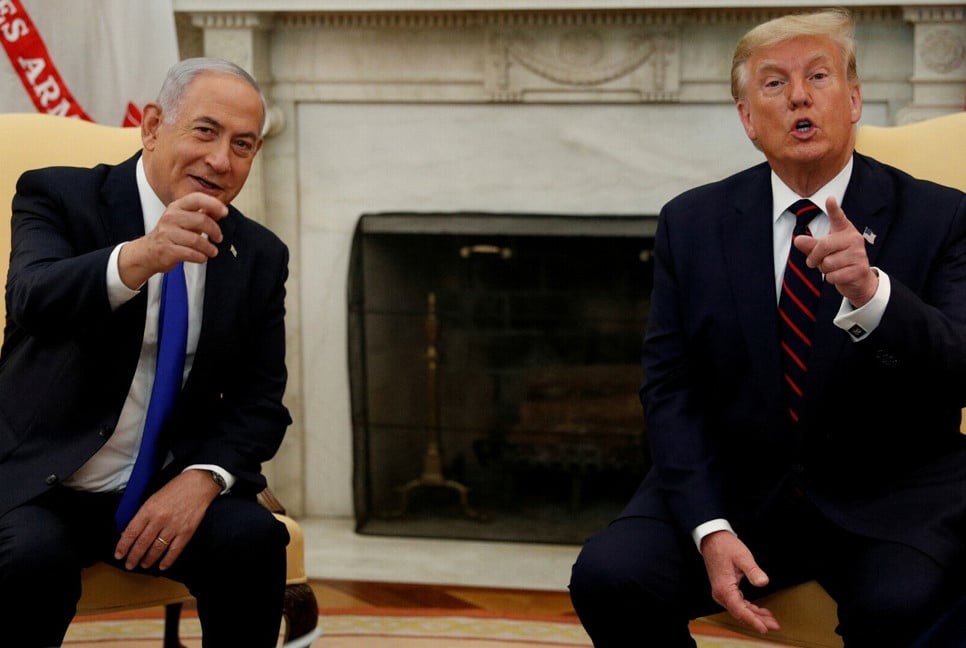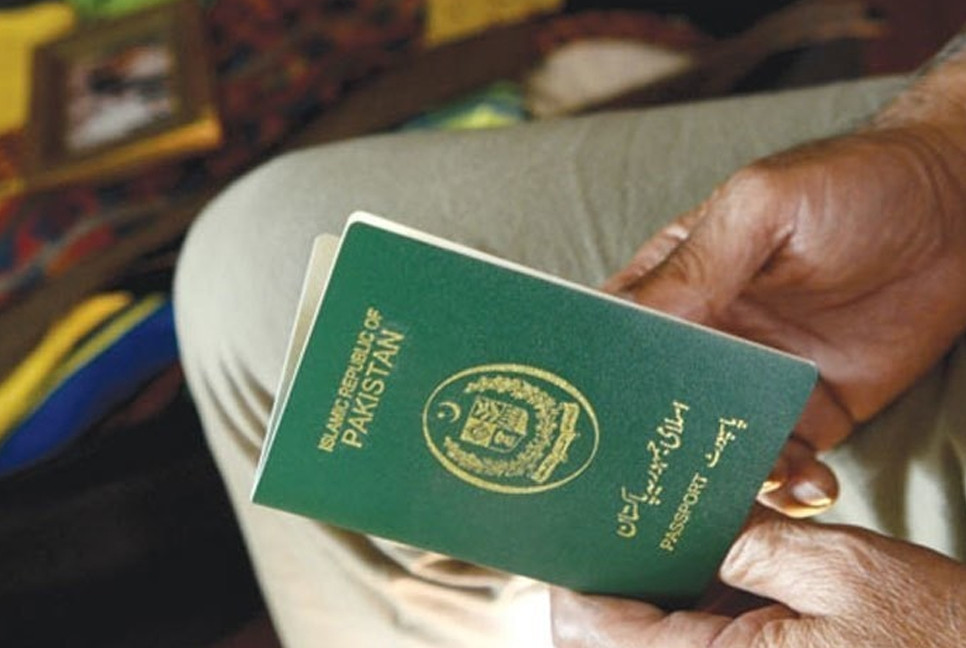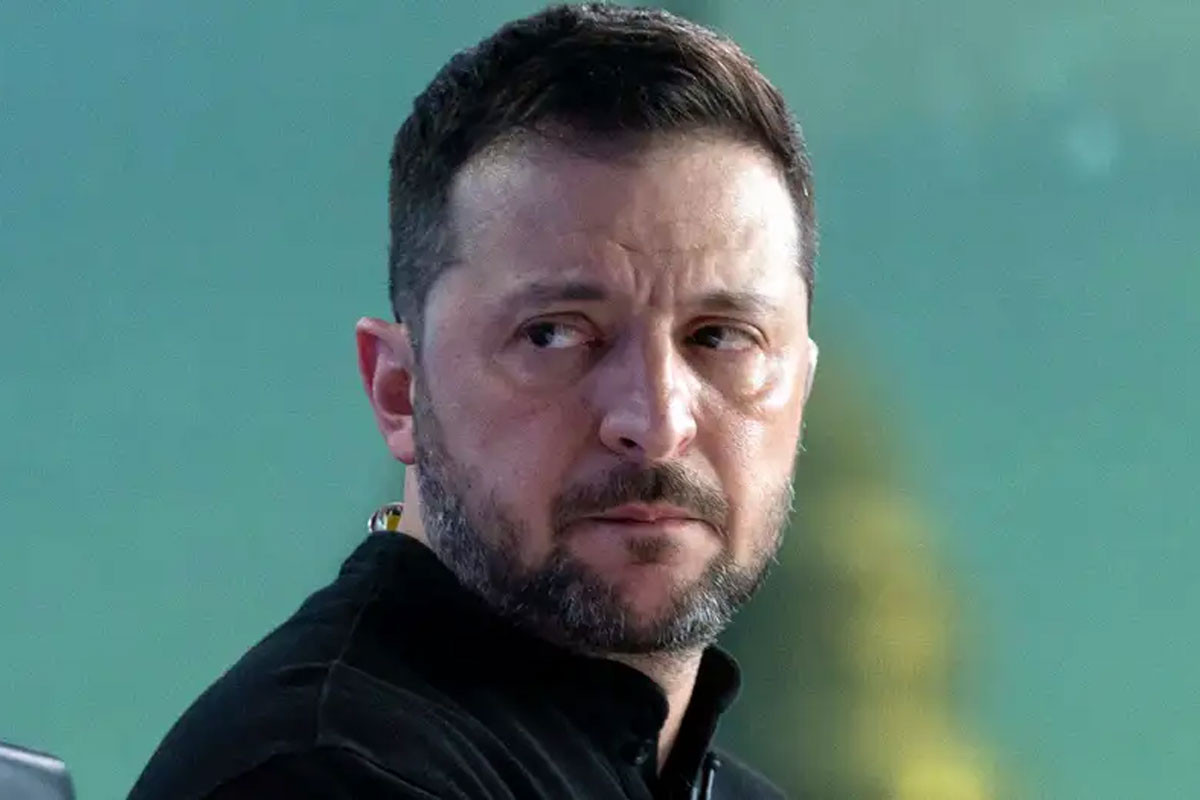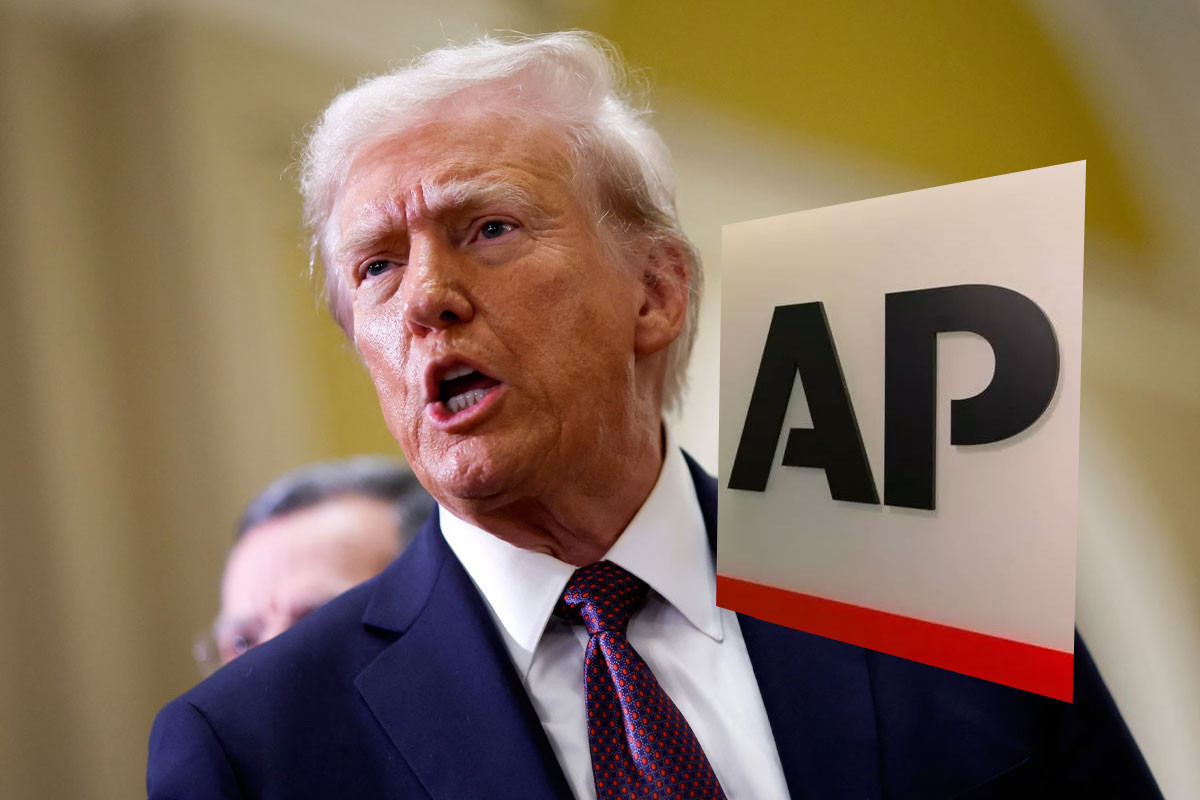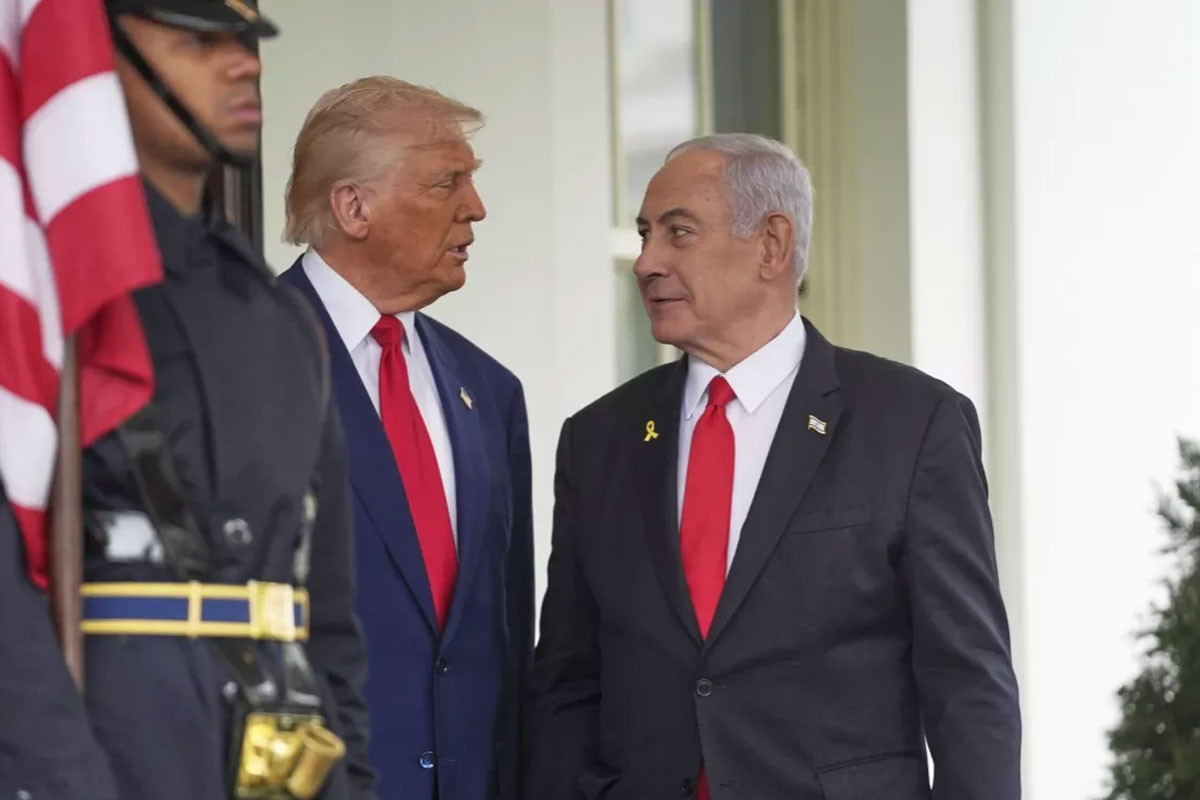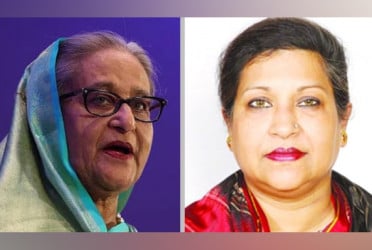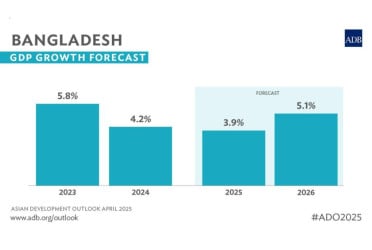The United States’ support has been a key for Israel in its war on Gaza which has been going on for more than a year now and has killed more than 43,000 Palestinians, according to conservative figures reported by health officials in the enclave.
It is for this reason that voters, citizens and observers around the globe are keeping a close eye on Donald Trump’s sentiments regarding Israel’s Gaza invasion, now that he has been re-elected as US president.
Having seen horrific pictures on social media of Palestinians killed, mutilated, starved and left in anguish by Israel’s attacks, it is not just the Muslim community for whom Trump’s stance on the topic is of immense importance, reports Dawn.
Trump’s rival in the elections, Democrat Vice President Kamala Harris, and outgoing US President Joe Biden were heavily criticised by many Democrats for their steadfast support of Israel in its deadly offensive in Gaza.
According to an analysis by researchers at Brown University, the US government has approved $17.9 billion in security assistance for Israeli military operations in Gaza and elsewhere since Oct 7, 2023.
The aid is “substantially more than in any other year since the US began granting military aid to Israel in 1959”, the research notes.
Notably, the Arab-American Political Action Committee (AAPAC) had refused to endorse either of the two in the elections, citing their “blind support” for Israel in its operations in Gaza and Lebanon, possibly leading to Harris’ defeat in the elections.
Although the Biden administration faced growing criticism over not being able to secure a ceasefire yet, it had not offered any substantive policy differences on Israel over time, other than a slight shift in tone.
Hence, many are wondering whether Trump would bring any changes in US policy and be more assertive about securing a ceasefire, or will be an ardent backer of Israel as in his previous term.
This piece looks at various statements the Republicans have made since Israel invaded Gaza last year, which may indicate where his support lies.
While both Harris and Trump have repeatedly voiced support for the longtime US ally and its so-called “right to defend itself”, the former had backed efforts for a ceasefire-hostage deal.
In contrast, the president-elect has called on Israel to finish its offensive and “get the job done”, which according to the Israeli newspaper Israel Hayom means defeating Hamas — Israel’s stated goal for which it continues to pummel Gaza.
When the Gaza offensive was less than a month in, Trump said he would “defend our friend and ally in the State of Israel like nobody has ever”.
But in a March interview with Israeli newspaper Israel Hayom, Trump urged Israel to “finish up” the offensive or risk losing global support.
While he noted Israel releasing “moving shots of bombs being dropped into buildings in Gaza”, he seemed to be more concerned about it giving a “bad image” of Israel and hurting it very badly “in a public relations sense”.
The Republican nominee also boasted about steps he took as the US president: recognising the disputed city of Jerusalem as Israel’s capital, moving the US embassy from Tel Aviv to Jerusalem, recognising Israel’s control over the occupied Golan Heights, and the Abraham Accords where the UAE and Bahrain agreed to normalise ties with Tel Aviv.
Trump and the Republicans have even accused pro-Palestinian protesters of being anti-Semitic.
In May, Trump vowed to deport pro-Palestinian student protesters from the US if elected president, on two separate occasions — NBC News mentions a New Jersey campaign and The Washington Post cites people at a donors’ meeting.
NBC News also noted that the preamble of the platform adopted at the Republican National Convention in July termed protesters as “pro-Hamas radicals”.
However, Trump also told Israeli Prime Minister Benjamin Netanyahu in their July meeting that he wants Israel to wrap up its operation in Gaza by the time he returns to office if re-elected, according to Times of Israel, which cited “a former Trump administration official and an Israeli official”.
The Associated Press had quoted Trump’s campaign as saying he pledged to “make every effort to bring peace to the Middle East” if elected.
In August, detailing the July meeting with Netanyahu, Trump urged for a quick end to the Gaza offensive but also mentioned Israel’s win: “Get your victory and get it over with. It has to stop, the killing has to stop.”
At the same time, he criticised Harris for working to “tie Israel’s hand behind its back [by] demanding an immediate ceasefire”, and reaffirmed to “give Israel the support that it needs to win”.
According to a Dawn report, when asked a question during their first presidential debate, Harris emphasised: “We must chart a course for a two-state solution,” which she said must ensure security for Israelis and “in equal measure” for Palestinians.
In contrast, the report added, Trump focused on his claim that Harris would allow Israel to be destroyed if elected, choosing not to address the proposed ceasefire in Gaza.
Last month, Trump told Netanyahu in a phone call last month, “Do what you have to do,” The Washington Post reported, citing six people familiar with the conversation.
Senator Lindsey Graham (R-South Carolina), who was on a call with Trump and Netanyahu, said the ex-president “didn’t tell him what to do militarily” but “expressed his awe for their military operations”, including the pager attacks in Lebanon.
Gleeful Israel after Trump’s win
Netanyahu and his supporters have celebrated Trump’s election as president, with the Israeli premier saying the Republican had made “history’s greatest comeback”.
“Your historic return to the White House offers a new beginning for America and a powerful recommitment to the great alliance between Israel and America,” he said in a statement, which was echoed by the leaders of the hard-right nationalist religious parties in his coalition.
Israel’s settler leaders welcomed Trump’s victory after Biden’s administration imposed sanctions and asset freezes on settler groups and individuals involved in violence against Palestinians in Israel-occupied West Bank.
“We expect to have an ally standing unconditionally beside us as we fight the battles that are a war on the entire West,” Israel Ganz, chairman of the main Yesha settler council, said in a statement to Reuters.
Nearly two-thirds of Israelis believe Trump would be better for Israel than Harris, according to a survey from the Israel Democracy Institute.
Their expectations may have some credibility as following the removal of Yoav Gallant as Israel’s defence minister, US Secretary of Defence Lloyd Austin said on Friday he looked forward to “having that same good partnership and working relationship” with Gallant’s successor.
Detailing his conversation with Gallant, Austin said on X: “I underscored that the US commitment to Israel’s security remains ironclad, as does our support for Israel’s right to defend itself against aggression from Iran and its partners and proxies.”
He stated that the US has “further strengthened our posture in the Middle East to defend US personnel and our allies and partners”.
However, Austin also reaffirmed the US commitment to “de-escalation in the region through securing a hostage release and ceasefire deal in Gaza and a diplomatic resolution in Lebanon”.
Gallant’s replacement, Israel Katz, welcomed Trump’s election win, saying: “Together, we’ll strengthen the US-Israel alliance, bring back the hostages, and stand firm to defeat the axis of evil led by Iran.”
At the same time, Hamas said the election was a matter for the American people but called for an end to the US’s “blind support” for Israel.
“We urge Trump to learn from (President Joe) Biden’s mistakes,” Hamas official Sami Abu Zuhri told Reuters.
It remains to be seen if the US will witness any change in its policies towards Israel, especially regarding military aid as calls to end Palestinians’ suffering increase.

